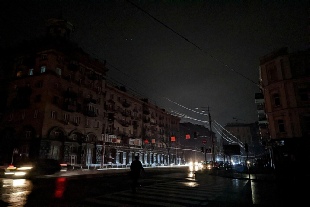
|
Early yesterday afternoon, I walked home from my local supermarket empty- The woman I passed wasn’t entirely accurate, but she was closer to the truth than I was. At around 12.30 p.m. local time yesterday, the entire Iberian peninsula, as well as a small part of southern France, suffered a massive power outage. A blackout on this scale hasn’t occurred in Europe since 2003, when 55 million people across Italy and parts of Switzerland were out of power for 12 hours. Eduardo Prieto, Operations Director at Spain’s grid operator REE, called it an ‘absolutely exceptional event’. It revealed a fact about 21st century society that we don’t like to confront: as well as giving us power and freedom, our technological sophistication also makes us vulnerable. In many parts of Spain, yesterday’s outage – or ‘apagón masivo’, to call it by its
wonderfully dramatic Spanish name – lasted into the early hours of Tuesday morning.
Spain’s interior ministry declared a national emergency and deployed 30,000 police
officers to keep order. Madrid’s Metro system was plunged into darkness and 35,000
passengers were rescued from inter- Today, Spain and Portugal are almost completely back to normal – but the investigations
are only just beginning. El Pais reported that yesterday’s power loss was caused
by a five- |
|
|
disappearance of 15 GW of generation – double the amount produced by Spain’s five nuclear power plants combined. But what triggered that remains unknown. At a press conference early yesterday evening – when large areas of the country were still off- In a somewhat reckless announcement early yesterday afternoon, the conservative premier of Andalusia, Juan Moreno, claimed that ‘everything points to the fact that a blackout of this magnitude could only be due to a cyberattack’. But the Spanish and Portuguese authorities, as well as the EU Commission’s vice president and energy commissioner Teresa Ribera, have all said that there is no evidence to support this theory. Still, the most sinister possibility has to be investigated. The National Cryptologic Center and the Joint Cyber Command – which operate as part of Spain’s National Intelligence Centre and ministry of defence, respectively – are investigating the possibility of a cyberattack. The question here is whether Spain and Portugal were the victims of an attack similar to that made on Ukraine by Russian hackers in late 2015, which left over 200,000 people without power for six hours. As one expert told El Pais, though, ‘a blackout of this scale through a cyberattack would be [much more] complicated because there are many segmented electrical networks’. Walking the pitch- |


